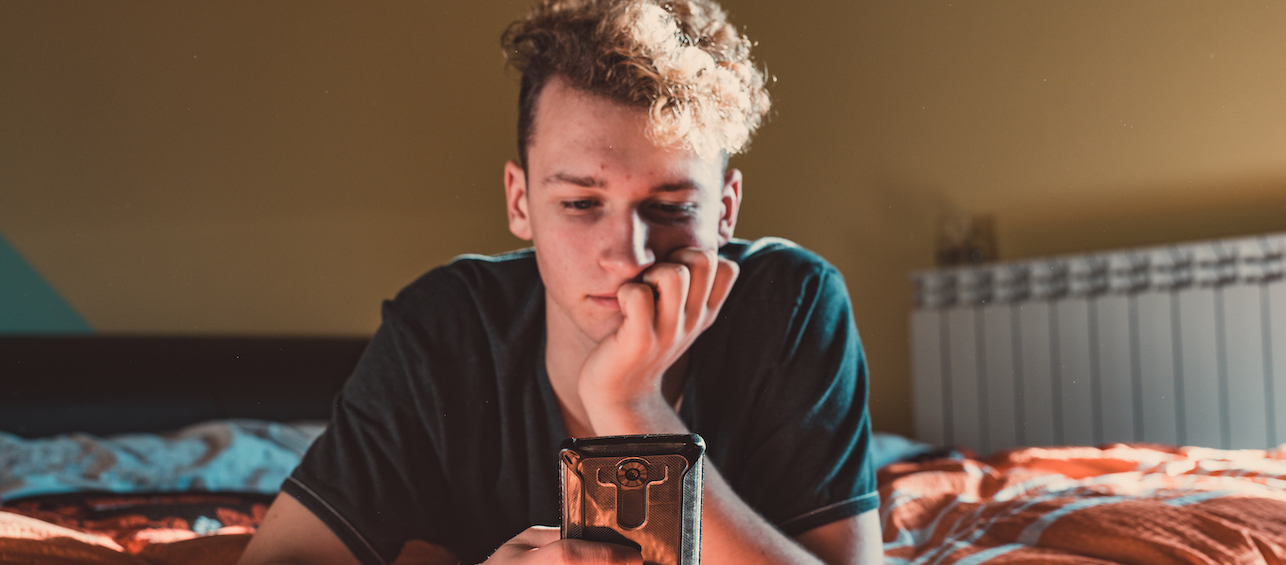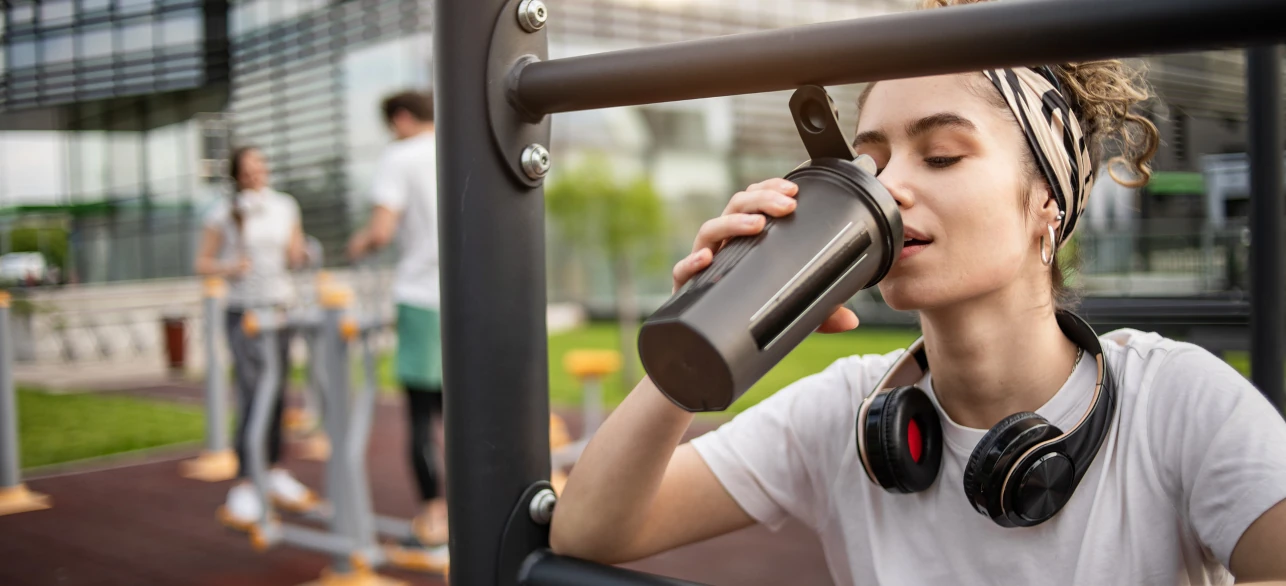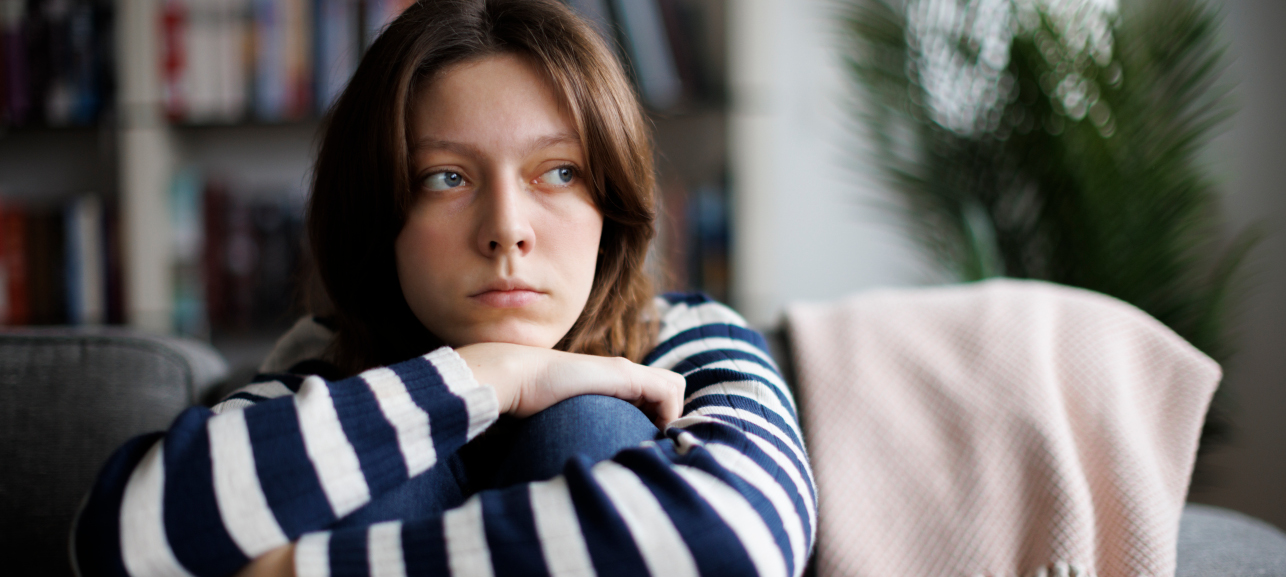So, COVID-19 sucks, right? If you’ve noticed that you’ve felt anxious, fearful, worried or stressed more than normal…well, you’re not alone.
Our entire world has changed because of COVID-19. It’s called an environmental trauma. When a trauma occurs, it’s common to have changes in thoughts, feelings and behaviors. And it doesn’t only happen to adults. It can affect kids, teens and young adults too.
When you’re in the teen years, you naturally seek out more social connections. Meaning you spend less time with your family and more time with friends. One of the main places to do that is at school. But with the COVID bomb going off, being at school isn’t an option for a lot of you this year.
Helping Yourself Feel Better
What does that mean? You’re cut off from your social scene. You’re spending more time at home than you’re used to. That can lead to anxiety and stress. If you notice that you’re feeling lonely, isolated or just bummed out, here are some things you can do to help yourself feel better:
- Try to turn a situation around and make it positive. Sure, staying at home more is a drag, but maybe it’s meant more time to play a certain video game than you normally would have during the school year.
- Make the most of family time, even though they might annoy you at times. Once you’re out of high school, you’re probably not going to have the chance to spend so much time with them anymore.
- Take advantage of video calls and social media for staying in touch with your friends.
- Suggest your family do something together that you haven’t had time to do in a while — maybe a board game night, hike in a park, or spend an hour laughing at your parent as you teach them how to play your favorite video game.
- Grieve your losses. Things are not normal and it’s OK to be upset, sad or disappointed by that. Talk to your friends and family members about how you are feeling and take time to process those feelings.
Living Powerfully
To live powerfully is to take control of things around you that are in your control that will naturally help you be healthy and can help you feel good. COVID is for sure out of our control. But other things that can help you live powerfully during this environmental trauma include the following:
- Maintain a daily routine with consistent sleep, activity and study patterns.
- Stay connected with others and speak to others about your feelings.
- Limit caffeine and energy drinks, as these increase feelings of anxiety.
- Relieve times of high anxiety with physical activity. Exercise regularly.
- Limit the amount of time you spend talking about or watching/listening to the news or social media if you find information about the COVID-19 situation overwhelming or distressing.
- Find a hobby or activity you enjoy to help calm you and focus your mind. Some ideas: Yoga, reading, photography, painting, drawing, writing, music, dance, cooking.
Overall, be kind to yourself and each other.
If you keep feeling overwhelmed, out of control or unable to calm down after a period of weeks, talk to a trusted adult who can help you find a mental health professional to talk to. Right now, it’s normal not to feel normal. But if those feelings become overwhelming, speak up. There are things that can be done to help those feelings not overtake your life.
The good news is this pandemic won’t last forever. But it has been a long road, and we need to take care of ourselves and one another while it lasts.
Helpful Resources
To get immediate help in a crisis:
- Call 911
- National Suicide Prevention Lifeline: 1-800-273-TALK (8255) for English, 1-888-628-9454 for Spanish, or Lifeline Crisis Chat
- National Domestic Violence Hotline: 1-800-799-7233 or text LOVEIS to 22522
- National Child Abuse Hotline: 1-800-4AChild (1-800-422-4453) or text 1-800-422-4453
To find a health care provider or treatment for substance use disorder and mental health:
- SAMHSA’s National Helpline: 1-800-662-HELP (4357) and TTY 1-800-487-4889
- Treatment Services Locator Website





